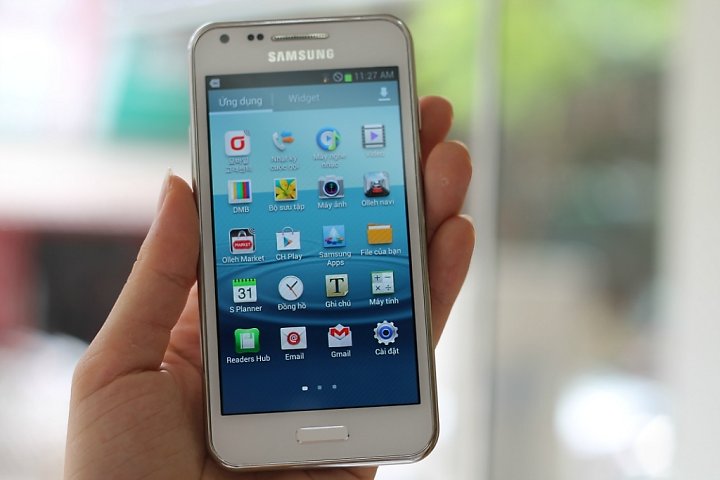The Samsung Galaxy R – How Does It Differ From The Galaxy S2?
The Samsung Galaxy R offers a similar experience to the popular Galaxy S2, but at a more mid-range standpoint in the market. With its similar styling and impressive touchscreen, much about the two appears the same on the surface.
In this article I will take a closer look at its key features, and decide whether it makes for a viable alternative to the Galaxy S2.
The Galaxy S2 is known for its impressive touchscreen, and the Samsung Galaxy R follows in its footsteps. Although it has a lower resolution (480x 800), the SC-LCD capacitive touchscreen does a great job of image display, and also offers a highly responsive means of navigating the TouchWiz UI.
Storage wise, the Samsung Galaxy R is up to the task with 8 GB of on board storage, along with the added bonus of a micro SD slot. This can accommodate a memory card of up to 32 GB, so whatever you like to use your phone for, you should be covered in this department.
Internet browsing is another strength of this device. Utilising both HSDPA and Wi-Fi, users can connect whether they have wireless network connection or 3G coverage. The full HTML browser supports flash, allowing users to take advantage of embedded flash content in websites such as games, videos and graphics.
As a camera phone, the Samsung Galaxy R is a capable device. With a 5 megapixel unit (2592x 1944 pixel resolution), which may be a bit behind the seemingly standard 8 megapixels found on most new smartphones (including the Galaxy S2) but it is able to take good quality photos. Also, it can shoot HD video footage in 720p quality. Again, most new smartphones allow 1080p video capture, but unless you are a technology enthusiast, you are sure to be pleased with the results. The camera comes with an LED flash, autofocus, smile detection and video calling (via a front facing camera), so there are plenty of options to play around with, most of which can be set to automatic so it is easy to take great looking pictures.
The Android OS makes an appearance here, as it does on the likes of the Samsung Galaxy S2 and Galaxy Note, in its latest incarnation, known as Gingerbread (version 2.3). Alongside its dual-core 1 GHz processor, there are plenty of customisable features, with the power under the hood to run demanding applications and multitask efficiently.
Being an Android handset, there are countless applications and features included as standard, and of course users can download additional apps from the Android Market, much like the famous Apple AppStore.
So back to the original question, is this a viable alternative to the Galaxy S2? In my opinion, the answer is a resounding “Yes”. The Galaxy S2 is more advanced and powerful in many respects, so if you are a smartphone enthusiast, this might be the better choice, but for everyone else, put it this way; if the Samsung Galaxy R was available just a year ago it would have been the most advanced smartphone available at the time. It offers everything you could possibly want in a smartphone, with the added bonus of making a saving over the alternative higher-end devices.
